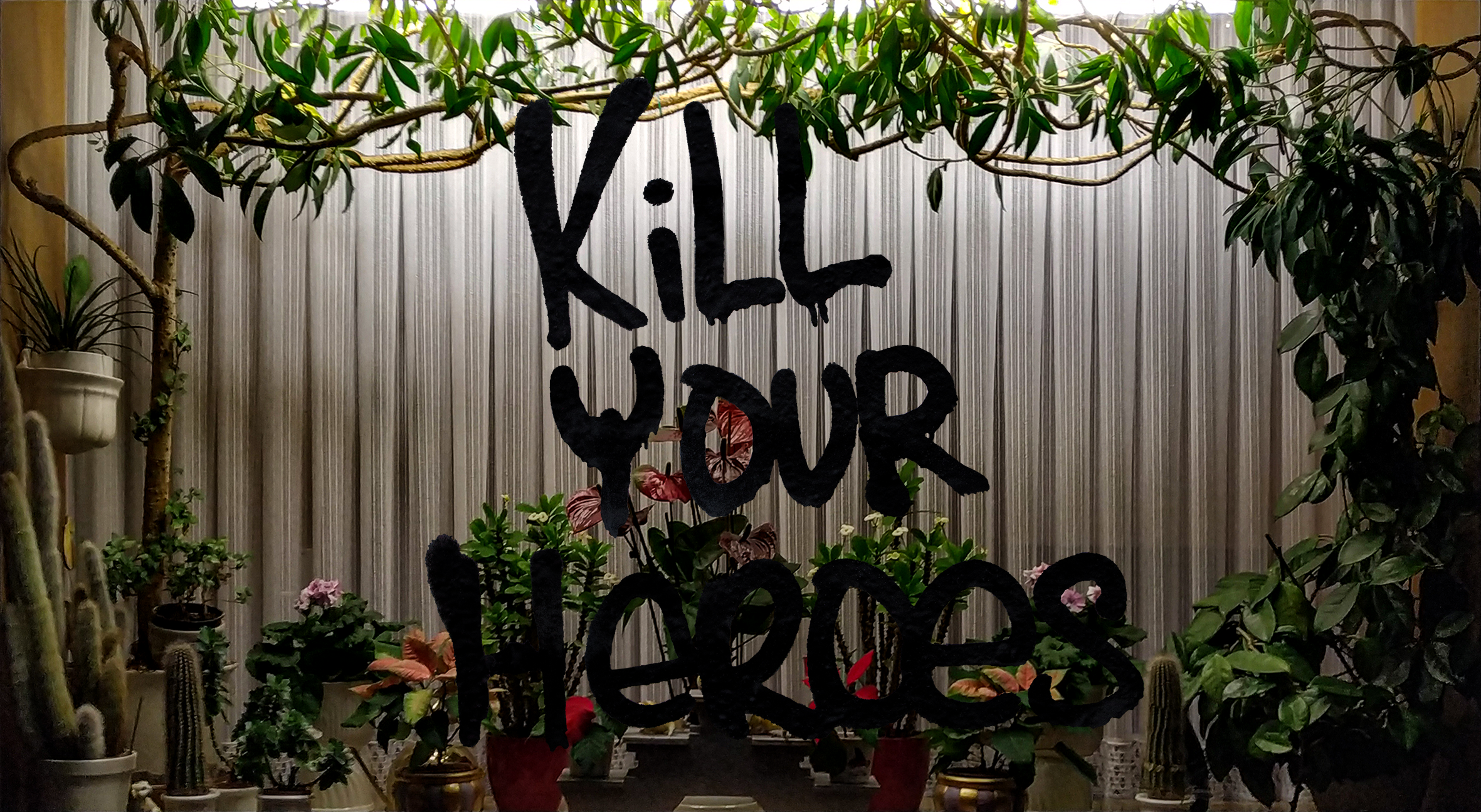We are proud to present an essay by Tomasz Kozak. Tomasz Kozak is a theoretician and visual artist combining philosophy, political sciences, and video art. He is an associate professor at the UMCS Institute of Fine Arts in Lublin, Poland. Currently, he works on a book inspired by Mark Fisher’s concept of libertarian communism.

The Mature Marx employs the metaphor of orchestra so as to illustrate the organisational gist of labour in corporate capitalism. Each self has a great deal of individual freedom, yet at the end of or rather during the working day, they must do as they’re told by managers. ‘A single violin player is his own conductor; an orchestra requires a separate one.’ (Capital) In order to secure the ‘harmonious’ working of the separated activities, management oversees atomised ‘organs’ in accordance with precise scripts similar to sheet music. One may venture to say (ironically or not, depending on more or less ambiguous attunement) that such notations have largely contributed to the development of ‘a world literature’, once heralded with ambivalent fascination in The Communist Manifesto.
Now, however fascinating capitalist orchestrations may appear, communism must counter-measure them accordingly. As early as paradigmatic and energising, one such attempt comes into play in young Engels’ Letters from London (1843).

Here emerge savvy workers immersed in scriptures of Paine and Shelley, Rousseau and Voltaire. The bookworms prove rebels taking on state religion. ‘It happens frequently that Christianity is directly attacked and Christians are called “our enemies”.’ But proletarian gestures are a far cry from undialectical univocality. Anger synergises with wit; meetings turn into waggish travesties of ‘church gatherings’. So ‘in the gallery a choir accompanied by an orchestra sings social hymns; these consist of semi-religious or wholly religious melodies with communist words’. As for the agitators, they make stand-up comedians. ‘Then, quite nonchalantly … a lecturer comes on to the platform’ and ‘delivers his address, which usually gives much occasion for laughter, for in these speeches the English intellect expresses itself in superabundant humour.’ Jocular agitation needs pick-me-ups. And there you go! ‘In one corner of the hall is a stall where books and pamphlets are sold and in another a booth with oranges and refreshments, where everyone can obtain what he needs or to which he can withdraw if the speech bores him.’ No wonder people turn out in droves: ‘during my stay in Manchester I saw the Communist Hall, which holds about 3,000 people, crowded every Sunday’.
Redallelujah!

The ludic-orchestral element updates itself via G.A. Cohen’s Self-Ownership, Freedom, and Equality (1995). In his view, advanced Marxian communism’s social structure should resemble a jazz band, where every single self is entitled to their solo act: self-fulfillment. Syncopated dynamics of various fulfilments (economic, existential, political) counterpointing one another in egalitarian and just manners – creates a multi-track expanse of productive liberty. And no conducting authority, let alone top-down disciplinary superintendence, is needed. People manage to inter-play democratically, deriving multilateral satisfactions from horizontal self-organisation.
Cohen, an old geezer entrenched in All Souls College, Oxford, came up with a jazzy construal of classical Marxism in the mid-1990s. At exactly the same time, post-rave youngsters were permutating (recall Amon Tobin’s album) jazz and funk into new genres: jungle, drum and bass, breakbeat hardcore. They used to sample quotes from old records and compress them into post-industrial breaks: short sounds (beats, scratches, noises, glitches) shot at revolted listeners.

Collisions of sonic molecules – both subversive and hedonistic – inadvertently revamped the Epicurean and Bloomian concept of clinamen. Latin-derived clinamen denotes a deflection of atoms that let them collide with one another freely (Epicurus, Lucretius) or allow each to contest hitherto trajectories and thus play whimsically with tradition (Bloom).
According to Bloom, so transgressive a swerve is by no means an innocuous play game. It can be a risky business, for the transgression, deviating from customary routes and routines, hazards a downfall into an abyss. Milton’s Satan proves a paradigmatic deflector in such a conjuncture – he ends up at the bottom of hell. Fortunately, we may resort to Marx, whose doctoral thesis on the Epicurean atomism consoled us regarding the threat of damnation. The after-life hell for individuals exists no more than the alike ‘hell of the populace’. Miscreants wanting to diverge for good and bid those who have left sod-off farewell – are allowed to whoosh by scattering into the non-judgemental beyond.

Should the rest decide to keep up the fight, we ought to engage in small, medium, and large-scale clashes. And in the spirit of bellicosity, I call for a big band of badass theorists.
Let them be funky old farts, rejuvenated rockists, growling gamers, and guerrilla glitchers. Oh, but this motley crew must also be a gang of well-versed professors. I want an academic riff-raff riffing on Marx and Engels. Arm them with pens, as red as hell. They will abduct children of Christian democrats and sodomise Tory altar boys with queer quotes. I’m waiting for a neo-Marxism invasion. Gimme local gigs and top-gear grand tours.
Pleased to meet you
Hope you guess my name
But what’s puzzling you
Is the nature of my game …
